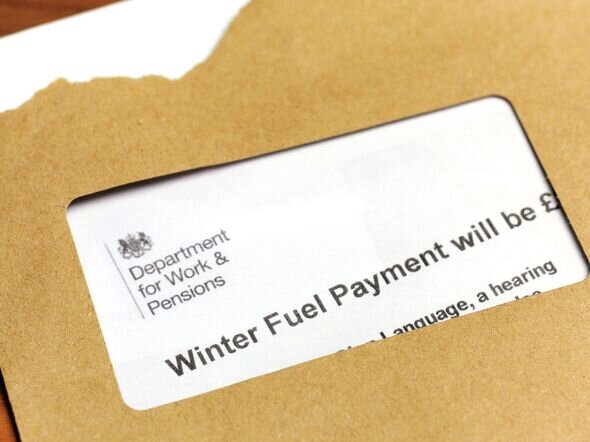Understanding Limited Capability for Work (LCW)

Limited Capability for Work (LCW) is a critical support mechanism aimed at individuals who struggle to work due to health issues, either physical or mental. Maintaining a sustainable income while facing mental health challenges can be overwhelming. This article explores the eligibility criteria for claiming LCW in the UK, focusing specifically on those with mental health issues and low income. Understanding whether you qualify can significantly impact your financial well-being and offer much-needed support during challenging times.
LCW is offered as part of the Universal Credit system and also the Employment and Support Allowance (ESA). If you have a limiting health condition—including mental health issues—or a disability that affects your ability to work, you may be eligible for LCW. This article provides detailed insights into the application process, necessary documentation, and the benefits available to those qualifying under the LCW scheme. We will also mention how expert guidance can assist you in navigating this process.
Definition and Key Points
Limited Capability for Work (LCW) is an essential component of the UK’s welfare system, designed to provide support to individuals who are unable to fully engage in employment due to health-related issues. This includes both physical disabilities and mental health conditions that significantly hinder one’s ability to work. LCW is part of the Universal Credit and Employment and Support Allowance (ESA) schemes, offering financial assistance to those who qualify.


Mental Health and Income
You must have a recognised mental health condition affecting your work ability. It’s essential for the condition to be well-documented, with evidence from healthcare providers such as medical certificates, reports, and ongoing treatment records. In addition to having a mental health condition, applicants must also pass an income assessment. This assessment is part of the Universal Credit or ESA process and determines the level of financial support an individual is eligible for based on their earnings, savings, and other income sources.

As of 2022, the number of LCW applications rose by 15% compared to the previous year, reflecting increased awareness and need.Recent Statistics on LCW

20% of LCW applications relate to mental health issues, underlining its significant impact on employment capabilities among applicants.Mental Health Impact

LCW Application Process
Applying for LCW involves multiple steps aimed at evaluating your capability to work given your mental health condition. The first step is to submit a claim for Universal Credit or ESA. Detailed documentation, including medical certificates and reports, will be necessary. A work capability assessment will follow, usually involving a healthcare professional. This assessment determines the extent to which your mental health issues limit your ability to work.
In cases where an individual is found to have limited capability for work, they receive additional financial support. This not only helps cover living expenses but also includes access to job support services designed to accommodate their specific needs. Organising and submitting all relevant documentation thoroughly and accurately is crucial to ensuring a successful application.
Support Available for LCW
Those who qualify for LCW are entitled to several forms of support. Financially, they receive increased benefit payments under Universal Credit or ESA. Additionally, they qualify for employment support tailored to their condition, including specialised training programs and job placement assistance. Mental health-focused services are also provided to help manage conditions and improve overall well-being. Expert guidance can help you in maximising these benefits, ensuring you receive the support you're entitled to.
Accessing these benefits can significantly reduce financial strain, especially for individuals with low income. The holistic support system aims to help individuals stabilise their living conditions and gradually improve their work capabilities. Navigating the complex application process can be challenging, but careful preparation can ensure you receive timely support.

Tax Tips for LCW Applicants

Ensure you report all medical conditions accurately for full benefits eligibility. Errors or omissions can delay your application.Maximise Your Benefits

Keep all medical and financial records organised. These documents are crucial for meeting LCW application criteria and passing assessments.Track Documentation

Consider engaging professional services to streamline your LCW application, ensure accuracy, and maximise the benefits you are entitled to receive.Utilise Professional Services

Fun Facts About Financial Support
Did you know that financial support mechanisms for those unable to work due to health issues date back to the National Insurance Act of 1911? This Act laid the foundation for modern benefits systems, evolving significantly to accommodate various health conditions, including mental health.
Navigating the LCW Application Process

If you suspect you qualify for LCW due to mental health issues and low income, the first step is to assess your medical documentation. Collect any medical records, prescriptions, and reports that detail your condition. Next, initiate your claim through Universal Credit or ESA online portals. Organising these documents and ensuring you meet all application requirements timely is crucial.
Finally, prepare for your work capability assessment. This involves answering questions about how your mental health condition affects your daily life and work capabilities. Professional advice on what to expect during the assessment can be invaluable. Following these steps carefully increases your chances of a successful LCW application.

The work capability assessment is pivotal for LCW approval. It assesses your ability to perform work-related tasks despite your health condition. Ensure all medical certificates and health records are up-to-date for your assessment.Key Points on Medical Assessment

Compile all relevant medical and financial documents in advance. Detailed and well-organised documentation is crucial for a successful assessment. Engage with professionals who provide tailored advice, helping you navigate the application process efficiently.Preparation Steps
Summary
Understanding your eligibility for Limited Capability for Work (LCW) can significantly impact your financial stability, especially if you struggle with mental health issues and low income. The application process involves careful documentation, medical assessments, and compliance with strict criteria. Utilising the Pie Tax app can streamline this process, helping you organise required documents and maximise your potential benefits.
If you believe you qualify for LCW, take proactive steps to gather necessary medical records, initiate your claim through the appropriate channels, and prepare for your work capability assessment. Comprehensive support, including financial aid and job support services, can make a significant difference in managing your condition and improving your quality of life. Don’t hesitate to leverage the expert tax assistants on the Pie Tax app to simplify and optimise your LCW application journey. The Pie Tax App is completely free to use, find out what features are included here:
How is Pie different?
Pie is the only app for self assessment with tools for bookkeeping, your live tax figure, easy tax returns and helpful advice when you need it.
Save £168 per year vs Quickbooks, file your self assessment today for free with Pie
FREE
£89
+£59
£126
Quickbooks
£168
per year7 features
TaxScouts
£169
per year4 features
Accountant
£450
avg per year5 features
* Optional add on
Frequently Asked Questions
What is Limited Capability for Work (LCW)?
LCW is a support mechanism for individuals who cannot fully engage in work due to health issues. It provides financial aid and employment support.
How do mental health issues affect LCW eligibility?
Mental health conditions that significantly impede your ability to work make you eligible for LCW. Detailed medical documentation is crucial for assessment.
What is the Pie Tax app?
The Pie Tax App helps individuals organise and submit tax-related documents efficiently. It also provides access to expert tax assistants for personalised advice.
How long does the LCW application process take?
The duration can vary; generally, it takes several weeks to complete initial assessments and receive a decision. Timely documentation submission can expedite the process.
What support is available for those who qualify for LCW?
Qualifiers receive increased benefits, access to mental health services, specialised employment support, and job placement assistance to help manage their condition.










